Cananor Guild is one of Kerala’s first handloom luxury brands that focuses on scaling the traditional weaving craftsmanship worldwide. Cananor Guild was built to support and revive the handloom industry of Kannur, Kerala. Founded in 1939, our legacy spans across four generations. At Cananor Guild, timeless designs are customized based on the unique needs of each client. Each product is carefully handcrafted by our local artisans.
1939
Founders: Late K. P. Kumaran and Late Punnakal Kannan. Started with just five handlooms.
1940s – 1960s
Low production costs and availability of a large number of mills facilitate the export of handlooms.
Numerous hand-woven products, including lungis, shirt material, and trouser material, supplied to the Indian market.
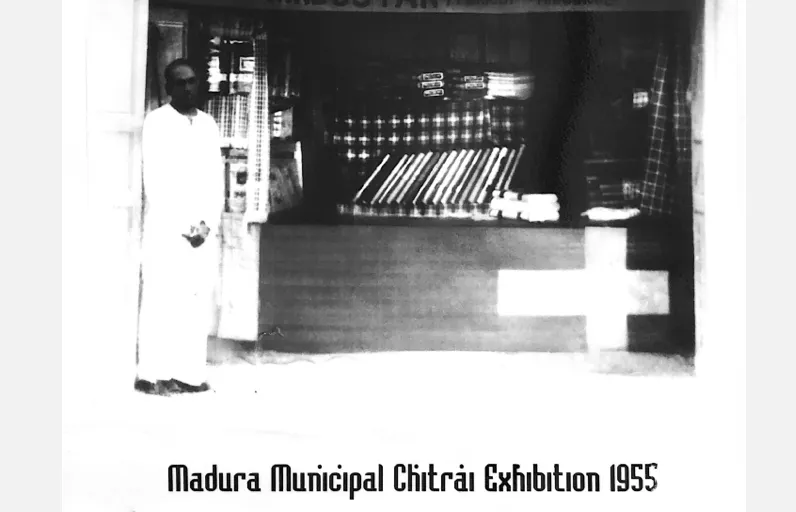
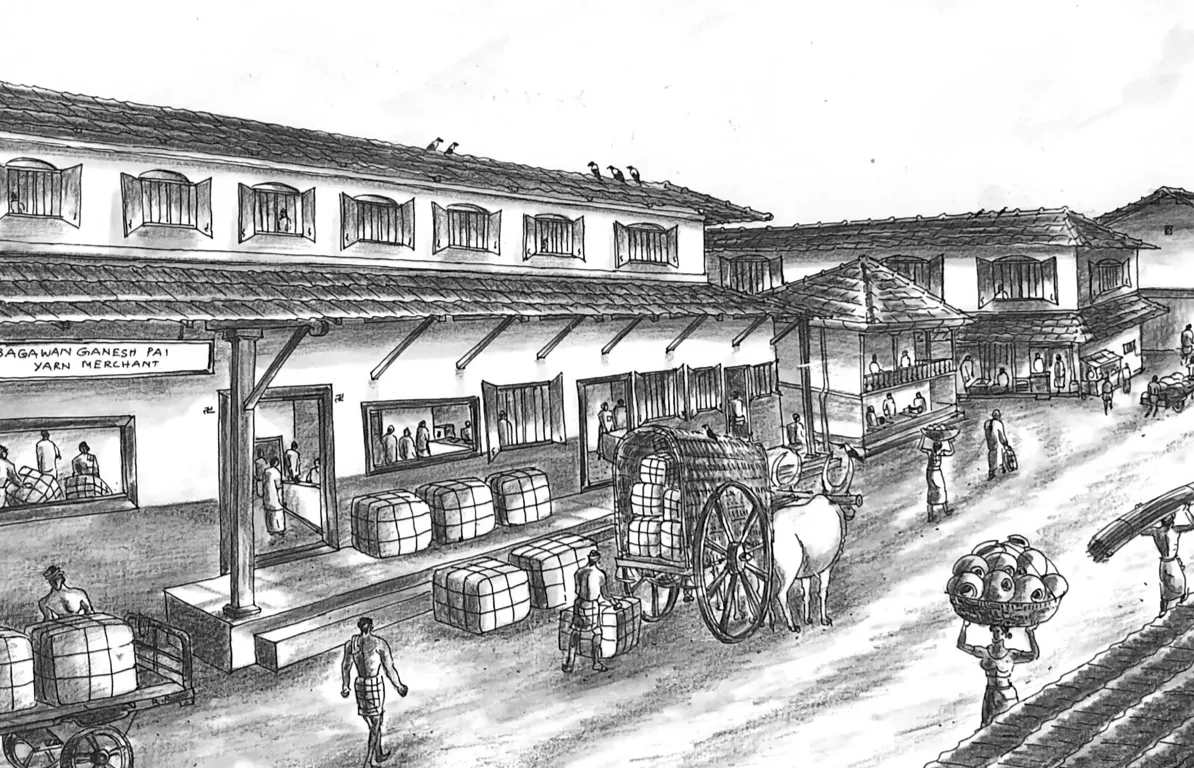
1970s – 1980s
Terry towels and jacquard home furnishings supplied to numerous parts of India, including Delhi, Bombay, Bangalore, Madras, and even Jammu and Kashmir. Export of our goods to other countries such as Sweden, the UK, Germany, and many other Scandinavian countries.
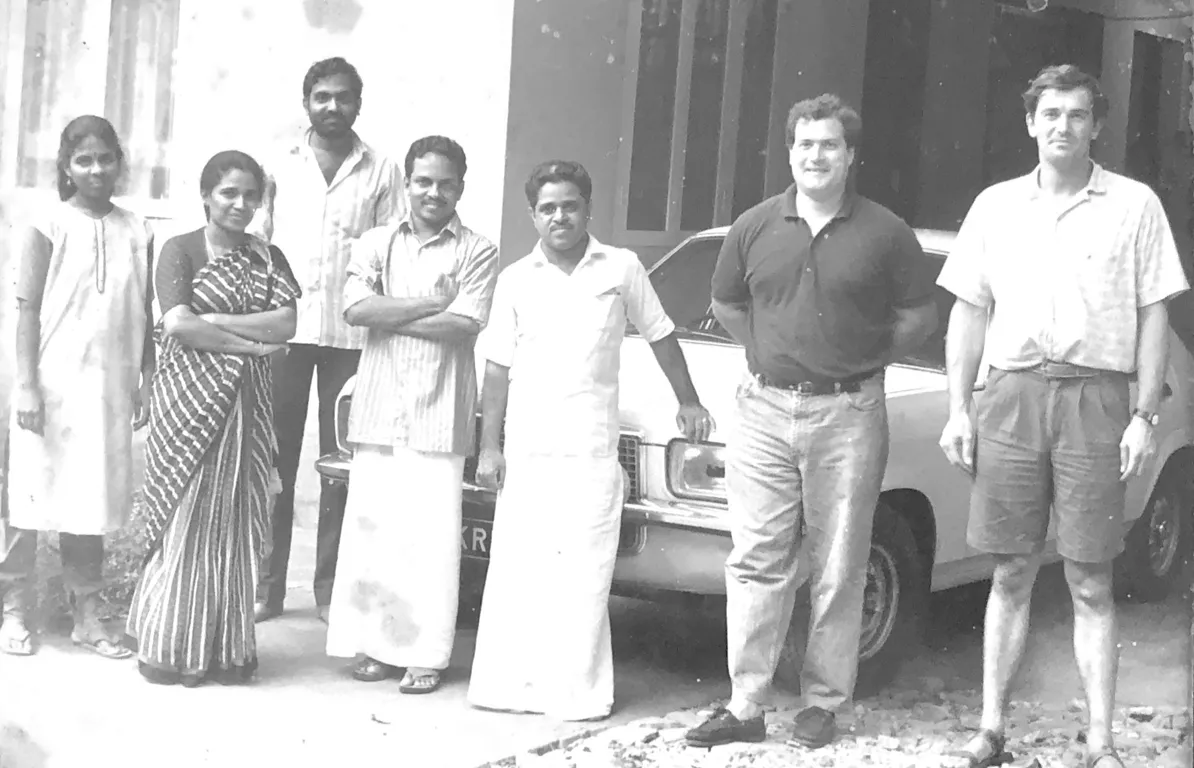
1988
Turning point for our business. In 1988, a designer from London came all the way to Kannur in search of handloom fabrics. He visited multiple times to create beautiful handwoven fabric designs which are popular to this day. The company exported fabrics to the UK, which was then distributed around the globe.
1990s
The company ventured into manufacturing home products made from handwoven fabrics. Kitchen and table linen were bought by major lifestyle stores and supermarkets located across the USA and Europe. The company also started manufacturing children’s clothing, bed linen, and other apparel products for local and international markets.
Building Cananor Guild
Growing up around weaving sheds and handlooms, Manjul was inspired by the handloom industry from an early age. Upon graduating from Cass Business School, London. Manjul worked at one of the leading textile companies in London, with a focus on customer centric roles. Over the past ten years, Manjul has travelled extensively around India, to expand technical skills and broaden networking with textile clusters.
Vandhana is a seasoned design professional who has worked with some of the greatest creative minds in high-end companies such as Ogilvy & Mather, Deloitte Digital, and so forth. Our passion for handloom textiles and fair-trade practices along with an interest in traditional weaving and modern aesthetics, inspired us to build Cananor Guild.

Our Social Impact
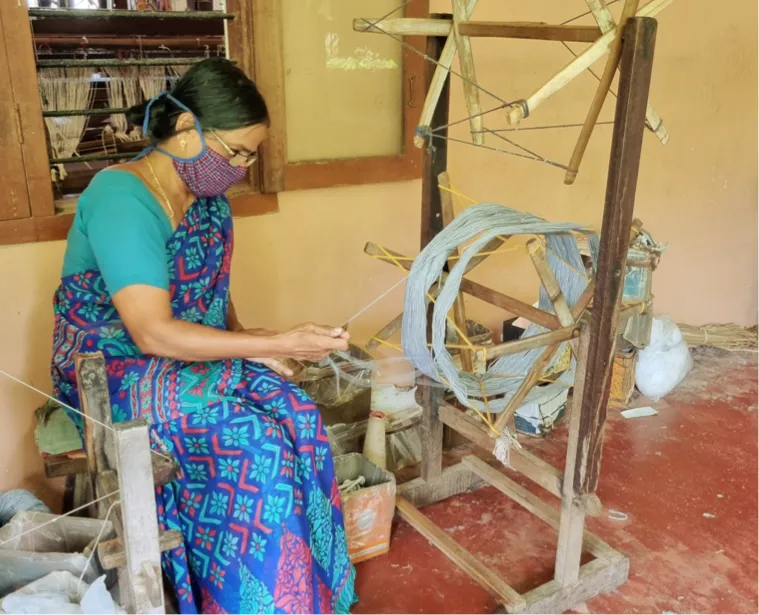
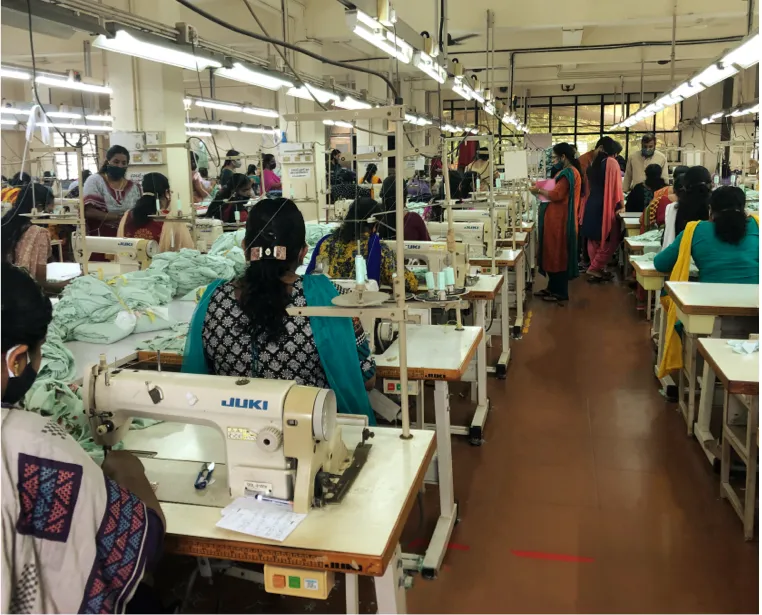
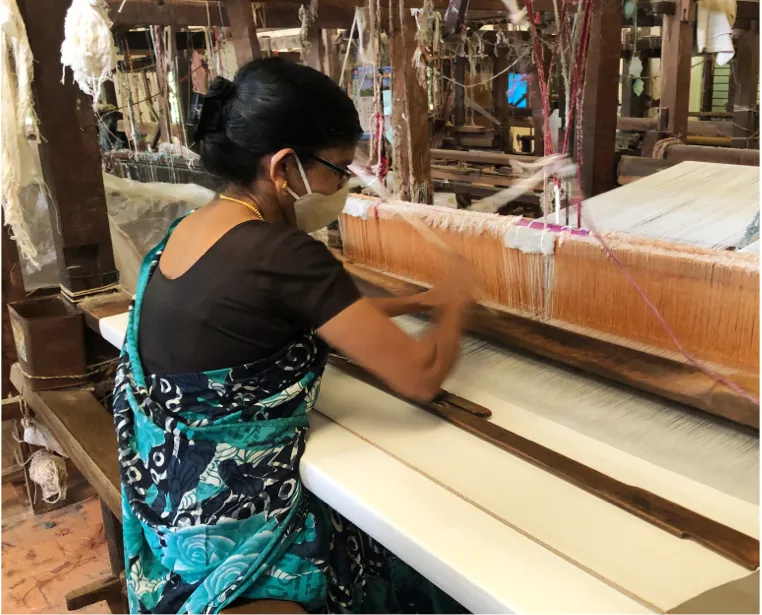
We work closely with Kudumbshree units in Kannur for tailoring and embroidery of our products. Kudumbashree is the poverty eradication and women empowerment programme implemented by the State Poverty Eradication Mission of the Government of Kerala.
Cooperative weaving societies: All our fabrics are hand woven at cooperative weaving societies in and around Kannur. These societies are an association of individuals who have come together and pooled their resources for a common economic aim. This has enabled the weavers to work together, procure yarn at a reasonable cost, market the products collectively and earn a fair wage for their work. These weavers and the societies have played an integral part in keeping the Kannur handloom industry alive.

Cananor Guild is one of Kerala’s first handloom luxury brands that focuses on scaling the traditional weaving craftsmanship worldwide. Cananor Guild was built to support and revive the handloom industry of Kannur, Kerala. Founded in 1939, our legacy spans across four generations. Each product is carefully handcrafted by our local artisans.
1939
Founders: Late K. P. Kumaran and Late Punnakal Kannan. Started with just five handlooms.
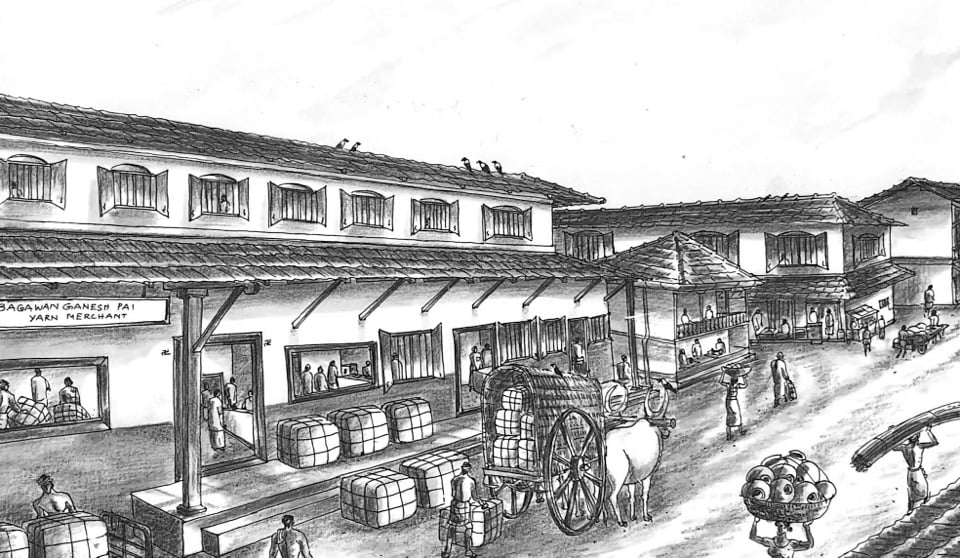
1940s – 1960s
Low production costs and availability of a large number of mills facilitate the export of handlooms.
Numerous hand-woven products, including lungis, shirt material, and trouser material, supplied to the Indian market.
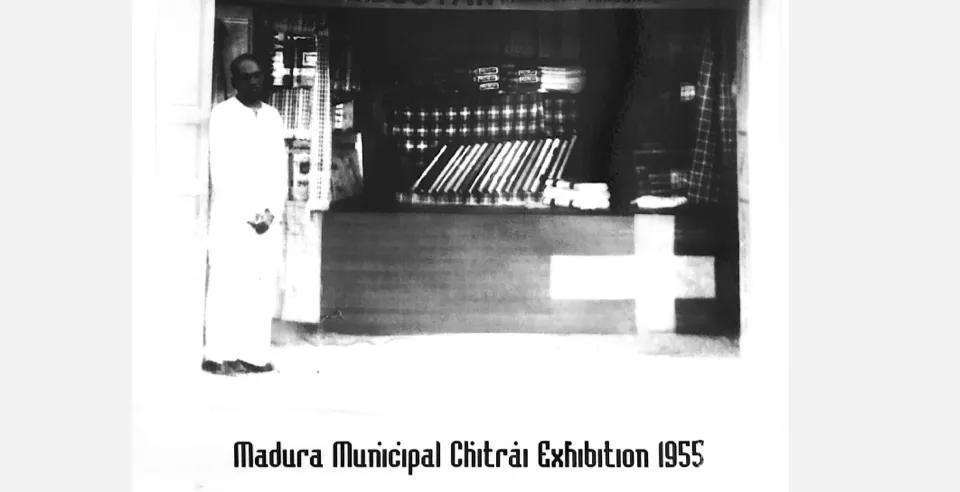
1970s – 1980s
Terry towels and jacquard home furnishings supplied to numerous parts of India, including Delhi, Bombay, Bangalore, Madras, and even Jammu and Kashmir. Export of our goods to other countries such as Sweden, the UK, Germany, and many other Scandinavian countries.
1988
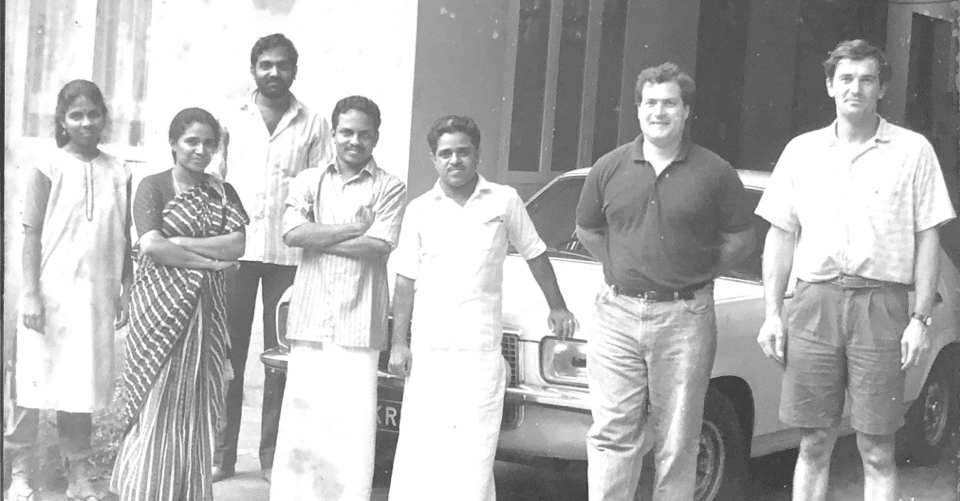
Turning point for our business. In 1988, a designer from London came all the way to Kannur in search of handloom fabrics. He visited multiple times to create beautiful handwoven fabric designs which are popular to this day. The company exported fabrics to the UK, which was then distributed around the globe.
1990s
The company ventured into manufacturing home products made from handwoven fabrics. Kitchen and table linen were bought by major lifestyle stores and supermarkets located across the USA and Europe. The company also started manufacturing children’s clothing, bed linen, and other apparel products for local and international markets.
Building Cananor Guild
Growing up around weaving sheds and handlooms, Manjul was inspired by the handloom industry from an early age. Upon graduating from Cass Business School, London. Manjul worked at one of the leading textile companies in London, with a focus on customer centric roles. Over the past ten years, Manjul has travelled extensively around India, to expand technical skills and broaden networking with textile clusters.
Vandhana is a seasoned design professional who has worked with some of the greatest creative minds in high-end companies such as Ogilvy & Mather, Deloitte Digital, and so forth. Our passion for handloom textiles and fair-trade practices along with an interest in traditional weaving and modern aesthetics, inspired us to build Cananor Guild.

Our Social Impact
We work closely with Kudumbshree units in Kannur for tailoring and embroidery of our products. Kudumbashree is the poverty eradication and women empowerment programme implemented by the State Poverty Eradication Mission of the Government of Kerala.
Cooperative weaving societies: All our fabrics are hand woven at cooperative weaving societies in and around Kannur. These societies are an association of individuals who have come together and pooled their resources for a common economic aim. This has enabled the weavers to work together, procure yarn at a reasonable cost, market the products collectively and earn a fair wage for their work. These weavers and the societies have played an integral part in keeping the Kannur handloom industry alive.
